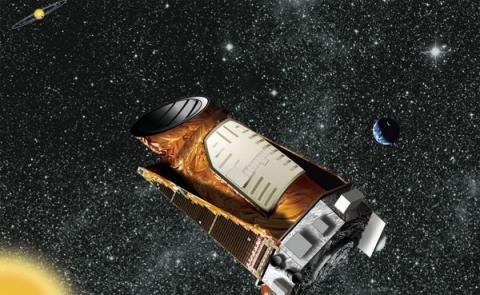NASA planet-hunter is injured and resting
The hope is that the lubricating oil that helps the wheel's ball bearings run smoothly around a track will redistribute itself during the rest period. The telescope can't take any science data while in safe mode. But if the wheel recovers on its own, Kepler's extended mission will run until 2016, leaving it plenty of time to make up for the lost days.
"Kepler is a statistical mission," says Charlie Sobeck, Kepler's deputy project manager at NASA's Ames Research Centre in Mountain View, California. "In the long run, as long as we make the observations, it doesn't matter a lot when we make the observations." Despite the high stakes, the team doesn't seem too worried. "Each wheel has its own personality, and this particular wheel has been something of a free spirit," Sobeck says. "It's had elevated torques throughout the mission. This one is typical to what we've seen in the past, and if we had four good wheels we probably wouldn't have taken any action."
"I prefer to picture the spacecraft lounging at the shore of the cosmic ocean sipping a Mai Tai so that she'll be refreshed and rejuvenated for more discoveries," wrote Kepler co-investigator Natalie Batalha in an email. The team will check up on the wheel on 27 January and return to doing science as soon as possible.
There are two exoplanet missions currently being considered for after Kepler is finished, says Doug Hudgins at NASA Headquarters in Washington, DC. One, TESS (Terrestrial Exoplanet Survey Satellite), would scan the entire sky for planets transiting the stars nearest to the sun. The other, FINESSE (Fast Infrared Exoplanet Spectroscopy Survey Explorer), would take spectra of planets as they passed in front of their stars as a way to probe their atmospheres.
The missions are being evaluated now, and NASA will probably select one this spring, Hudgins says. The winner will launch in 2017. If Kepler goes down with its reaction wheel, that won't affect which mission wins, he adds. "That's a straight-up competition based on the merits of the two concept study reports."
Lisa Grossman

